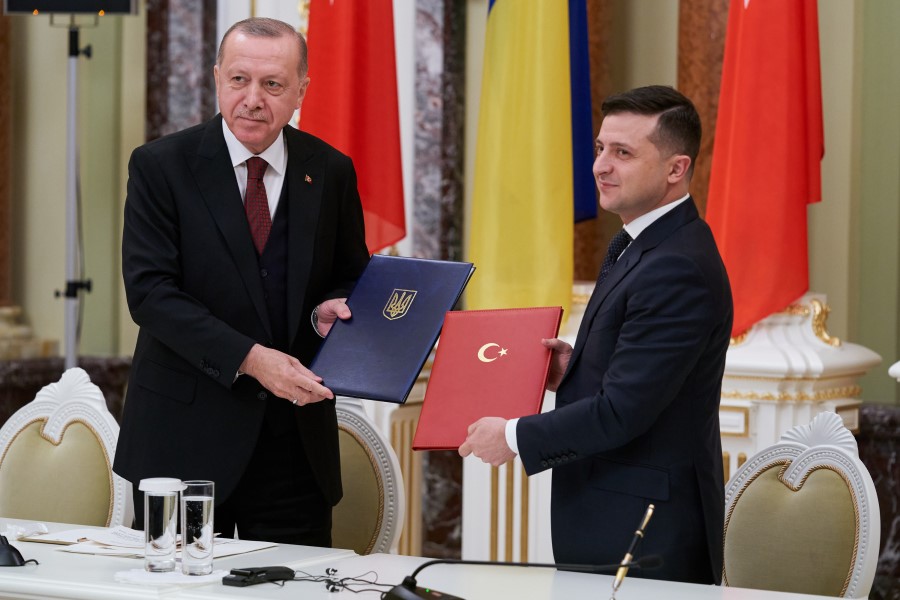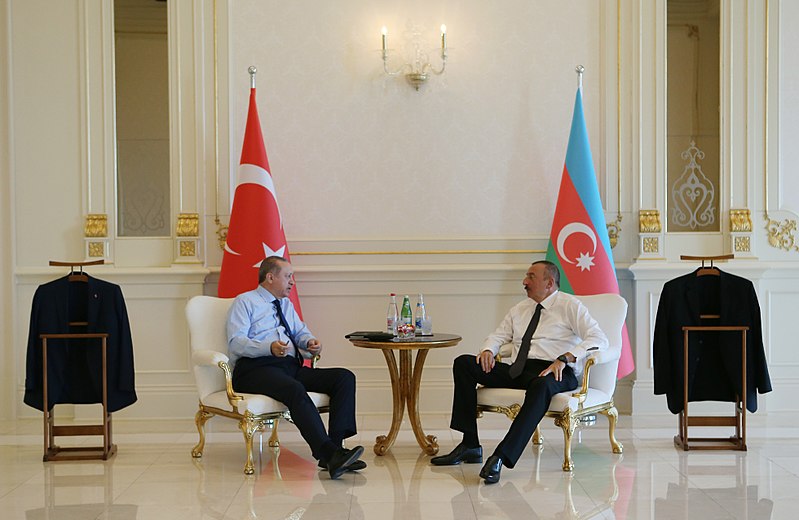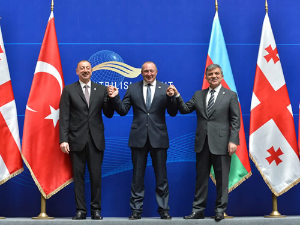Turkey Seeks to Counter Russia in the Black Sea-Caucasus Region
By Emil Avdaliani
October 5, 2020
Turkey increasingly views Ukraine, Georgia and Azerbaijan as parts of an arc that could help it balance Russia’s growing military presence in the Black Sea and in the South Caucasus. With this objective in mind, Ankara is stepping up its military cooperation not only with Baku, but also with Tbilisi and Kyiv. Turkey is signaling that it intends to play a far more active role in the Black Sea-Caucasus region in order to contain Russia’s influence. This regional strategy has wider implications as it demonstrates that Turkey, contrary to what has become a common perception in the West, is not moving closer toward Russia and that in fact Turkish and the Western geopolitical interests largely converge, with Turkey supporting Georgia’s NATO ambitions.

Turkey’s Commitment to Azerbaijan’s Defense Shows the Limits of Ankara’s Tilt to Moscow
By Turan Suleymanov and Bahruz Babayev
September 25, 2020
Turkey’s active, military and diplomatic involvement in the recent Azerbaijan-Armenia border clashes has sent a strong signal to both Armenia and Russia that Turkey will not remain passive and quietly acquiesce to any attempt to destabilize Azerbaijan. At stake is not only Turkey’s standing in Azerbaijan, arguably its closest international partner, but equally its energy safety and its wider, Central Asian political and economic ambitions. The Turkish intervention in defense of Azerbaijan is an unmistakable political warning that multiple actors will be involved in a possible escalation by Armenia of its conflict with Azerbaijan. In this sense, it serves as a guarantee for long-term stability and security in the south Caucasus. Reasonably, Armenia will have been permanently discouraged from seeking any further confrontation with Azerbaijan.

Turkey’s Alternative Gas Suppliers: Who to bet on?
By Ipek Velioglu
January 15th, 2016, The Turkey Analyst
Turkey’s decision to shoot down a Russian jet in the Syrian border led to a crisis between the two countries. Although Russia and Turkey always had divergent political agendas, they maintained a good relationship. In the last decade, thanks to the personal relationship of the leaders, Russia and Turkey created a strong economic partnership, especially in the energy field, and kept it separately from the political sphere. But this time is different: the deterioration in political relations will have a strong impact on energy cooperation. Russia slammed economic sanctions on Turkey and big investment projects are at risk. Given its dependency on Russian natural gas, Turkey is concerned about its energy security, making the quest for alternative suppliers and sources highly relevant.
Do Russian-Turkish Energy Relations Have a Future?
By Najia Badykova
December 9th, 2015, The Turkey Analyst
Despite sharp political disagreements, Russia and Turkey have in the past weathered difficult times, pragmatically handling their differences. However, the current crisis is substantially different from any other previous quarrel. In the current hostile environment between Ankara and Moscow, the idea of Turkey as a transit hub for Russian gas is unlikely to make any headway whatsoever. Yet Turkey and Russia remain interdependent. Reasonably, both will eventually re-engage and make efforts to safeguard common economic interests, including the now suspended Turkish Stream project. The result will depend on how soon they will be able to check and eventually defuse the tensions that are now rapidly building up.
A Collective Security Alliance Takes Shape in the South Caucasus
By Micha’el Tanchum (vol. 7, no. 17 of the Turkey Analyst)
The defense ministers of Turkey, Azerbaijan, and Georgia conducted their first trilateral summit in mid-August, adopting specific measures to regularizetheir defense cooperation. Ankara’s participation in the nascent South Caucasus collective security alliance is motivated by Turkey’s ambition to become a leading Eurasian energy and commercial transportation hub and its need therefore to secure the Trans-Anatolian Natural Gas Pipeline and the Baku-Tblisi-Kars railway by providing a credible deterrent against increasing Russian interference in the region.






